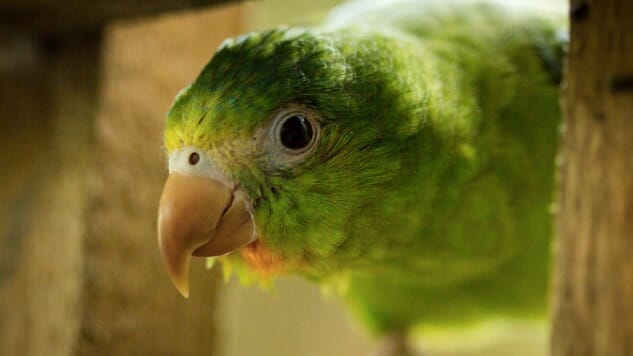Dispatches from Colombia: Morning in the Country

Day begins early. The roosters blow reveille long before any hint of the sun, in the deep-indigo hour when Valledupar feels coolest. The bellicose cocks stand on tiptoe and flap starchy wings, their unearthly cries rising from every point of the compass.
Tent vendors along the rocky Guatapurí River a few hundred yards from the Castro family compound start to stir. In a few hours, these entrepreneurs will heap sticks and planks to build fires for grilling ribs and plantains, arepas and chickens. Locals will come in droves to beat the hammering equatorial heat with a dunk in the icy river, pure snowmelt from Sierra Nevada ranges just north and west. Customers will blink through swirling smoke as the food hawkers fan coals and flip sausages and ladle sancocho, all to a soundtrack of blaring salsa and vallenato tunes.
Alvaro Castro, patriarch of my fiancé’s family and a native son of Valledupar, rises before the roosters. He eases out of bed in a house that he designed and built himself, years ago, back when Rio Luna, the family place, was no more than a rocky field.
Today, a high painted wall encloses several houses and an acre or so of planted mango and shade trees, these surrounding a big smooth concrete plaza and a raised stage. Every April, thousands of paying customers crowd the compound to see famous vallenato and international performers. Rio Luna shows are a hot ticket at the musical Festival of the Vallenata Legend, one of the most important folk culture events in South America and Valledupar’s claim to fame.
This morning in January, the concert lies too far in the future for real concern. Alvaro wants to check the farm, his wake-up ritual. He cranks a white pick-up with a king cab, headlights blazing, and guides it through an electronic gate and out into Valledupar.
Times change. In Alvaro’s lifetime, Valledupar has grown from a slow-moving, languid country town into an energetic city of 400,000. Rising apartment buildings and banks serrate the skyline now, and one neighborhood looks like Bel Air.
This hour, buses and motorcycles and cement trucks still snooze.
A few minutes from town, on spreading savannah lands, grazes a small herd of Castro dairy cattle. The cows give good milk. Most trips to Bogota, Alvaro steps out of El Dorado airport proudly carrying a bag of fresh farm cheese from the herd. Delicious and salty, it graces our table at breakfast, a Colombian custom. The cheese goes fast.
If we’re lucky, Alvaro also brings a box of fresh mangos plucked from the family trees. Ripeness doesn’t matter. Colombians shred green mango into something like fettucine, then douse it with salt, black pepper, and vinegar … a mouth-puckering snack or appetizer. Ripe mango, deep orange, chilled in a bowl and served with café con leche, might be the breakfast they serve in heaven.
Alvaro checks out a stand of teca (teak), a fast-maturing, big-leafed hardwood. Teca can be harvested every few years to make furniture. A delay of the rainy season last year stunted the first Castro planting, but the hardy trees that remain have taken hold now and show promise.
Alvaro cruises back to Rio Luna as the sun crests the eastern-most ridge of the Andes. (Troubled Venezuela lies on the far side.) He stops the pick-up some mornings for a deep-fried arepa with an egg inside.
-

-

-

-

-

-

-

-

-

-

-

-

-

-

-

-

-

-

-

-

-

-

-

-

-

-

-

-

-

-

-

-

-

-

-

-

-

-

-

-








































